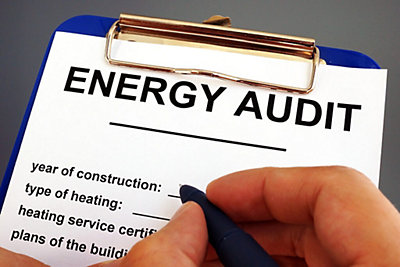Give Your Home a Quick Energy Audit!

Usually “getting audited” is a bad thing … But in the case of an energy audit, it will help you save money!
What Is an Energy Audit?
If you’re not familiar with the concept of auditing your home’s energy use, essentially it means assessing how and where your home could be losing energy. And any energy efficiency weakness in your home is a place where you’re losing money! Also, keep in mind, even if you live in a newer home rather than an older home, you can’t assume there are no energy losses happening.
Energy Audit Checklist
So, without further ado, here is our checklist for performing a DIY home energy audit:
1. Check Your Insulation
Is your home losing precious heating/cooling, through the walls and ceiling? It’s possible that whenever your home was built, the insulation recommendations were lower than they are today. Here at Parker & Sons, we offer blown-in insulation that meets the high “R values” required by our hot Phoenix climate.
Sure, it doesn’t get very cold here in winter, but it does get VERY hot in summer. So, you’ll want to be prepared to insulate your home from the heat. You may be wondering, what is an “R value,” when it comes to insulation? The “R” stands for resistance — namely, how resistant the insulation is to heat flow. Your home may have insulation as low as R13, but Parker & Sons offers blown-in insulation with R values from R38 to R60, which is what is recommended in our climate. That means, you’re guaranteed to be warm in winter and cool in summer!
2. Check Your Ventilation
If you determine in your home energy audit that your home’s insulation is adequate, that’s great! But attic ventilation, as well as the ventilation in the rest of your home, is just as important when it comes to saving energy.
Think of it this way: since you know heat rises, that means heat tends to get stuck in the highest point of your home, your attic. Especially during the summer, you don’t want heat from inside and outside your home to get trapped in your attic and make a giant hot oven! So, it’s important to have vent chutes in your attic to keep air moving.
Similarly, the efficiency of the vents in the rest of your home is important too. What do we mean by this? Well, it’s important that the vents throughout your home are properly sealed, so that air doesn’t escape through little gaps and cracks. If the air that is meant to be heating or cooling your home escapes, then, according to ENERGY STAR, you could be spending as much as 20% more on your monthly electric bills than you need to be[1]! That’s no good! Here at Parker & Sons, we’re happy to help answer any ventilation questions you may have. We’ll help you save energy, and also save money!
3. Get an HVAC Tune-Up
The next step of your energy audit should be determining whether your HVAC system is properly maintained. We know, coming from us, the idea of getting an HVAC tune-up as part of your energy audit sounds like we’re in it for ourselves… but really, we’re in it for YOU! If a technician isn’t inspecting and cleaning your equipment — ensuring that your system is running as efficiently as possible — then, your HVAC equipment could be what’s costing you a fortune on your energy bills!
Contact Parker & Sons
From insulation, to ductwork, to a faulty old HVAC system… there are so many factors that could be causing your home to lose energy (and cause you to lose money)! At Parker & Sons, we are always here to help keep you comfortable in your Valley home.
Related Reading
Subscribe to our e-Newsletter
Stay up-to-date on current news, promotions, and industry tips.
